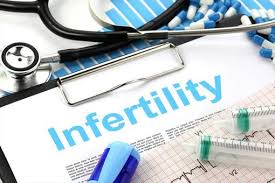For intended parents exploring egg donation, the path can be a challenge. The process is guided not only by science and medicine but also by ethical considerations that safeguard the well-being of all involved. Understanding how a donor egg is selected and the ethical principles that guide this process can help you make informed decisions on your fertility journey:
Egg Donor Screening
Selecting an egg donor is a carefully regulated process. Medical evaluations, psychological assessments, and genetic testing are conducted to minimize potential risks and ensure the donor meets the highest standards of care. Reputable clinics use comprehensive screening protocols to ensure the health and suitability of donors. This includes the following tests:
- Medical Screening: Egg donors undergo thorough medical evaluations to check for infectious diseases, reproductive health status, and overall wellness.
- Genetic Testing: Clinics perform genetic tests to identify any inherited conditions. This helps prevent the transmission of genetic disorders and allows intended parents to make informed choices about their future family.
- Psychological Evaluation: Mental health professionals assess each donor to ensure emotional readiness. They consider the motivations for donation, understanding of the process, and potential mental impact, making sure that donors are fully prepared for what lies ahead.
Ethical Concerns in Egg Donation
Ethical concerns are at the heart of egg donation. It is essential to ensure that donors are fully informed and provide their consent freely without any pressure, safeguarding their autonomy throughout the process. For intended parents, understanding these can bring comfort and clarity as you move forward. Here are some ethical concerns to explore:
Informed Consent
Donors must give fully informed consent before participating in the process of selecting a donor egg. Clinics should provide detailed information about every aspect of the experience, including medical procedures, potential risks, legal rights, and possible future contact with donor-conceived children. This ensures that donors are not pressured or misled, and their participation is truly voluntary.
Confidentiality
Protecting the privacy of both donors and intended parents is a foundational principle. Patient records and donor details remain confidential, following strict privacy laws. Some families and donors may agree to identity disclosure, but most arrangements maintain the donor’s anonymity unless all parties consent otherwise.
Rights of the Child
As the use of donor eggs grows more common, the rights of children born through these methods require careful consideration. Ethically responsible clinics support full transparency for families who wish to share their origins with their children. The child’s right to know their genetic background, when appropriate, is gaining broader recognition. Parents are encouraged to think about how and when they might discuss these details, balancing privacy, openness, and the child’s best interests.
Find a Fertility Clinic to Screen For a Donor Egg
If you are considering egg donation, look for a clinic that upholds high ethical standards. Ask about their donor screening protocols, informed consent processes, and how they protect donor and child rights. Open discussions with your care team about these topics can bring peace of mind and help you make ethical choices. Egg donation can be a meaningful way to build a family. You can approach this path with clarity and compassion by understanding the moral landscape and the safeguards in place.









Leave a Reply